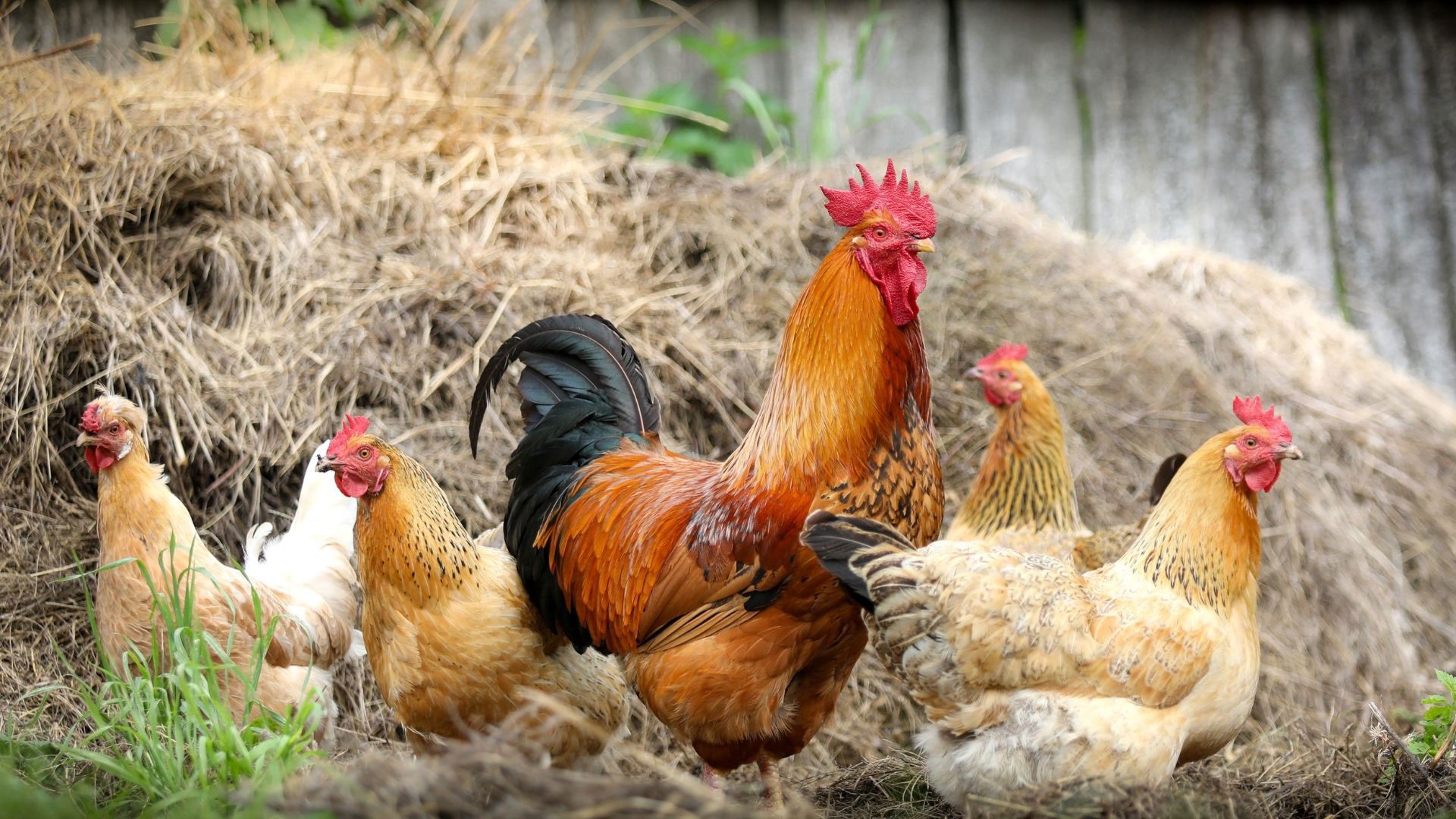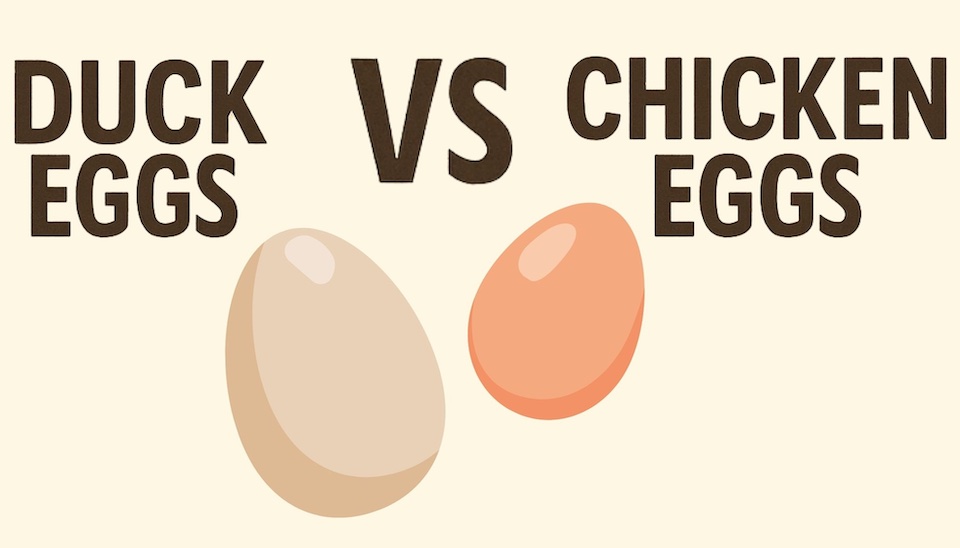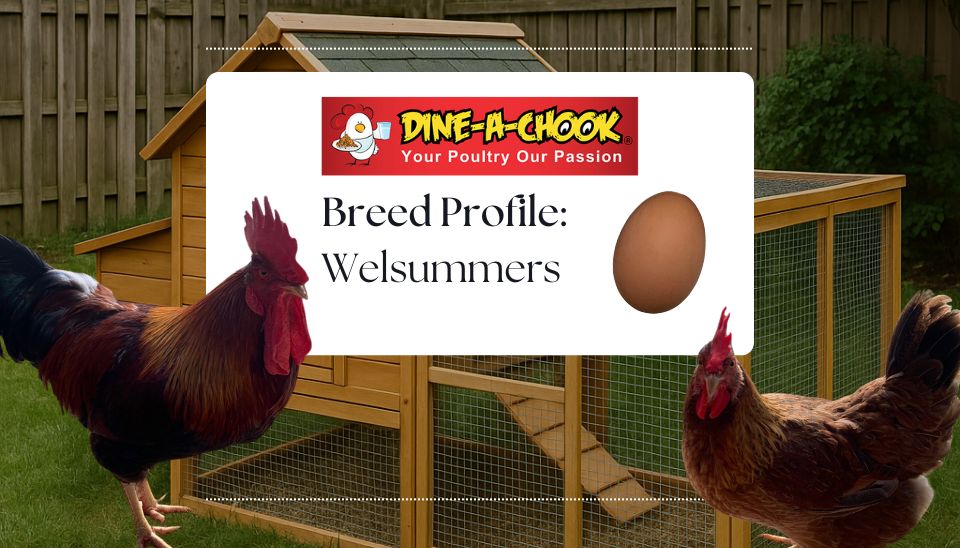How to treat worms in chickens
How to treat worms in chickens
Did you know that even healthy chickens usually have worms? Fortunately, healthy chickens can cope with a small number of worms without becoming ill. It is only when the number of worms increases that your chickens will become stressed and unwell.
There are steps you can take to prevent worms from causing illness in your chickens. This includes managing the coop to reduce the amount of worm eggs your chickens are exposed to by cleaning regularly, keeping grass short and preventing contact with wild birds. It is also good practice to deworm your chickens regularly, to prevent worm numbers from getting out of control.
Left untreated, a worm infestation will cause illness to your flock and can also lead to the death of your birds. At any given time most chooks have worms, so preventative treatment can keep these pesky little guys from becoming a real problem.
This article provides further detail on the symptoms of a worm infestation as well as how to prevent and treat worms in chickens.
Does my chicken have worms?
The simple fact is that almost all chickens have worms. Chickens that free-range or have contact with wild birds definitely have worms. But even backyard chickens that spend most of their time in the coop usually have worms too!
It is only when worms multiply to unhealthy levels that they cause problems for chickens. This can happen in an unclean environment, where chickens are just exposed to so many worms on a daily basis. It is also more common in chickens with other health issues such as stress, disease or a poor diet.
Because backyard chickens usually have worms, it is important to deworm your flock regularly to prevent worm infestations from affecting your hens' health and productivity. If you don't worm your hens regularly, worm numbers may build to unhealthy levels, causing the symptoms of a worm infestation.
Here is a list of the most obvious signs and symptoms of worms in chickens:
- Unusual weight loss
- Decreased egg production
- Poor weight gain including in meat birds and young pullets
- Irregular feed consumption - chickens with worms may eat more or less than usual
- Lethargy, puffed up feathers or droopiness
- Egg yolks are paler than normal or 'threads' are visible in egg whites
- Abnormal droppings - this includes diarrhoea, foamy, frothy, pale or yellow droppings
- In extreme worm infestation, you may see roundworms in the chook poop
- Vent feathers appear dirty
If you are very worried about worms, a vet can identify then from a faecal test. But because all chickens have worms, and the purpose of worm control is ensuring that chicken worm loads do not become high enough to cause health issues, regular deworming is advisable even without a test.
Types of chicken and poultry worms
There are many types of worms and parasites which can infest chooks. The most common are:
- Threadworm (also called a hairworm)
- Roundworm
- Caecal Worm
- Tapeworm
There are other worms that affect chickens, but roundworm are really the most common problem for backyard chicken keepers.
Worms that don't live in the intestine are not covered in this article. But for your reference, two of the most common are gapeworm, which live in the throat, and eyeworm, which affect the eye. Gapeworm often causes chickens to wheeze or cough. You can read about diagnosing and treating gapeworm in chickens here.
Coccidia are another chicken parasite that live in the intestine and may have similar symptoms to worms in mild cases. The preventative measures that reduce exposure to worms will also reduce the chances of your chickens suffering from coccidiosis. You can read more about coccidiosis here.
How do chickens get worms?
Chickens can get worms from other birds, contaminated feed and water, insects, rodents or even from the soil.
The only way to completely protect your chickens from worms is to keep them in a coop at all times, where they don't have access to any soil, and to keep the coop scrupulously clean of droppings. This would also mean no insects, no greens from the garden, and never feeding birds on the coop floor. The coop would also have to be safe from rodents and wild birds.
In other words, it is almost impossible to keep a backyard flock from picking up some worms. Most backyard chicken keepers don't want their chickens to be confined for their whole lives, so it is lucky that worms really aren't that much of a problem for chickens as long as they are managed with regular deworming!
The most common causes of worms in backyard chickens are:
- Contact with wild birds, especially wild birds sharing feeders or drinkers
- A dirty chicken coop with uncleaned droppings
- Water that is contaminated with droppings or from an unclean source such as a dirty dam
- Feeding chickens on the ground. If you put scraps or treats on the ground, your chickens are more likely to pick up worm eggs
- Insects - slugs and snails, in particular, carry worms, but almost any insect can be a carrier of worms or worm eggs
- Contact with rodents
- Other chickens
Worms and worm eggs usually need a moist environment to survive for long outside of a chicken or insect, so wet weather, a muddy chicken run or damp bedding in the coop all increase your chickens' exposure to worms.
How to treat worms in chickens
Most experts recommend that chickens are treated for worms twice a year, in spring and again in autumn. This is a preventative measure that should be taken regardless of whether your chickens have the symptoms of a worm infestation and will help prevent worm levels becoming high enough to affect your flock's health.
For chicken worming, we recommend Kilverm Poultry Wormer. Kilverm treats all four of the most common chicken worms. It is suitable for all poultry and is safe for laying hens. Kilverm Wormer for poultry is effective as both a preventative and a treatment for active infestations. You can also use it for meat birds, breeders and ornamental birds.
Now here is the best part: You can deliver the appropriate dosage to your flock through their drinking water.
How to treat worms in chickens
Never deworm chickens in hot weather. Always choose a mild day.
- Preparation
Withhold drinking water for two hours before nightfall on the day before you plan to administer the treatment
- Calculate how much mixture
The dosage for Kilverm Wormer is 10ml per 200ml of fresh water. In the morning, measure the correct dosage and mix with the correct amount of fresh water. Chickens can occasionally refuse the medication due to the taste. Adding a little honey (1-2 T per litre) will help.
- Administer the medication
Clean out the Chicken Drinker and put the diluted chicken worming medicine into the Chicken Drinker. Now put the Drinker back in the coop. Leave for 8 hours.
- Other ways to administer chicken worming medicine
The brilliant minds at Dine a Chook have come up with an ingenious way to deliver the medicine to your flock. Our
all new 2lt Chicken Medicine Drinker is perfect for worming. Simply pour 100ml of poultry wormer into our Medication Drinker and top up with fresh water.Clean the coop thoroughly with disinfectant or Apple Cider Vinegar ACV 24 hours after you administer the medicine to help prevent re-infestation.
If treating an infestation, repeat the medication 2 weeks after the initial treatment. If using the medication as a preventative dewormer, re-treatment may not be necessary.
Treating laying hens:
Kilverm is safe to use with laying hens. There is no withholding period for eggs, which means you can eat the eggs of your birds even when they have been treated with Kilverm.
Treating meat birds for consumption:
A withholding period of 7 days is required when you administer Kilverm to birds to be slaughtered for consumption.
Tips for deworming chickens:
Here are some tips to help you ensure your chickens are properly wormed:
- Keep your chickens in the coop and ensure they have no other sources of water while they are being treated
- Do not give your chickens anything other than dry feed while they are being wormed
- Always treat all birds in the flock
- Add 1-2 T of honey per litre to the medicated drinking water to mask any bitter flavours and ensure your chickens consume the mixture
- Ensure chickens are familiar with the Drinker used for the medication prior to treatment
- Give the coop a thorough clean 24 hours after deworming to prevent reinfection
- Different treatments are needed for different types of worms, so if Kilverm doesn't seem to work for your chickens, have your vet diagnose the worms with a faecal test
Things to avoid when using Kilverm:
Here are some tips to help you get the most out of Kilverm Worm treatment for chickens and poultry:
- Do not deworm chickens in hot weather. We always choose a mild day in spring and autumn for deworming. Avoid deworming in summer unless a worm infestation is present.
- Kilverm is a medicine and should be used only as directed
- Avoid using chlorinated water if you can, or allow water to sit 24 hours uncovered for the chlorine to evaporate
- Do not deworm chickens if they are stressed or unwell
- Do not deworm hens while brooding
Ways to prevent worms in chickens:
It is impossible to fully prevent worms in chickens however here are some great ideas to minimise worm infestations:
- Prevent rodents in the coop
- Protect your chickens from contact with wild birds, if possible, or at least keep wild birds out of the coop
- Never feed your chickens on the ground, always use a Feeder
- Keep feed off the floor
- Never use a Feeder or Drinker that can easily become contaminated with faeces
- Use a clean source of water, avoiding water from dams and roofs
- Do not install Feeders or Drinkers underneath roosts
- Keep Feeders and Drinkers clean
- Avoid overcrowding
- Clean the coop regularly
- Using a droppings board underneath the roosts can also help keep things clean
- Keep the coop and run as dry as possible and free of puddles
- Worm new chickens (adults) before adding them to the flock
Because all chickens have worms, the best way to prevent severe infestations or health issues in your chickens is regular deworming. Deworm twice a year, in spring and autumn, with Kilverm Wormer for poultry. It is also recommended that birds are dewormed prior to breeding.
Keep in mind that while some natural remedies may have a deterrent effect on worms, including pumpkin seeds and Apple Cider Vinegar, they are not a dewormer and they are not effective enough to replace regular deworming with a product like Kilverm.
Shop here for Kilverm Poultry Wormer



